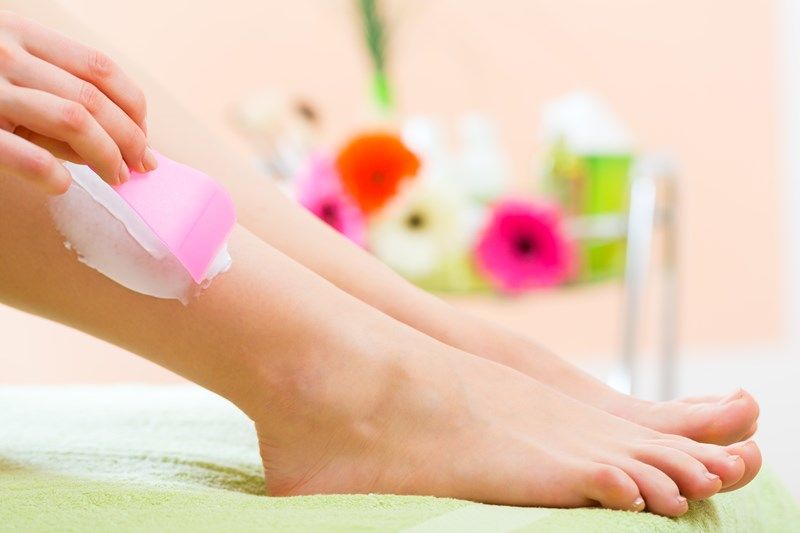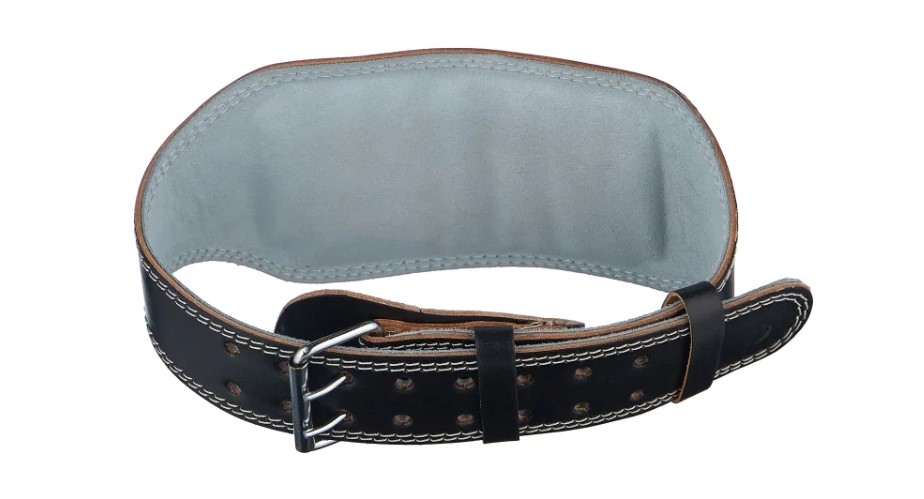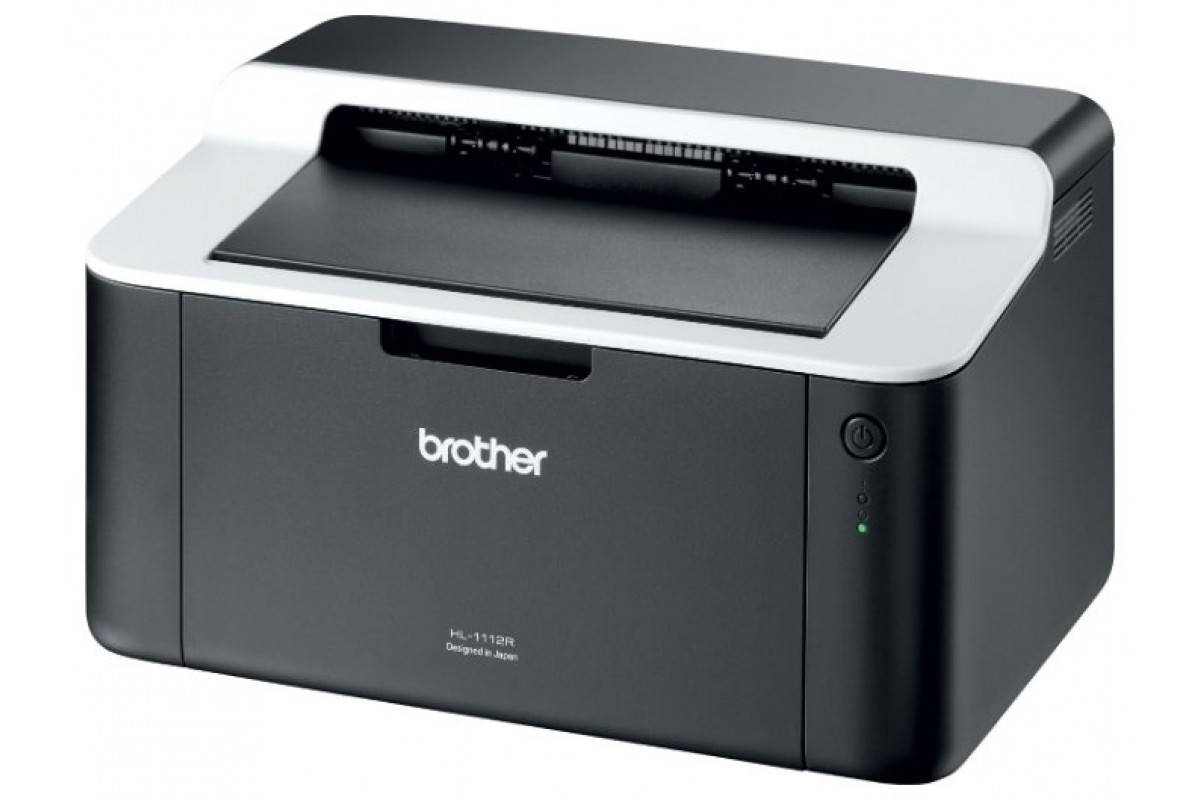The best drugs for the treatment of sinusitis in 2020

In medicine, sinusitis is known under a different name - sinusitis. This is a disease that develops in the maxillary cavity. During the pathological process, the nasal cavity, connected directly with the sinus, becomes inflamed. It is also possible the action of pathogenic microorganisms that move with the bloodstream. Below we will tell you about the best remedies for treating sinusitis.
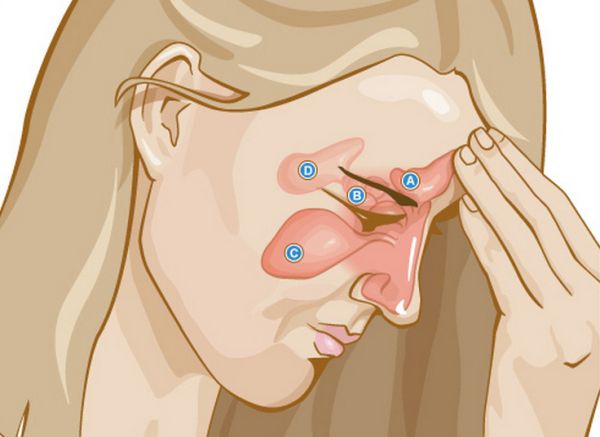
Causes of sinusitis
Common diseases leading to sinusitis:
- flu;
- scarlet fever;
- measles.
Depending on the duration, the following types are distinguished:
- acute;
- chronic.
Sometimes the provoking factor is a chronic rhinitis, which does not have an infectious genesis. For example, it can be chronic allergic rhinitis. This pathology contributes to a decrease in immunity, which causes damage to the maxillary cavity.
The vasomotor pathology that causes sinusitis is not of an infectious nature. The sinuses are affected due to a defect in the innervation of the vessels. Edema gradually develops, the mucous membrane swells, and the outflow of mucus is difficult.
Symptoms of sinusitis
It is possible to diagnose damage to the maxillary sinuses at home. What to look for? During the course of the disease, characteristic symptoms appear:
- general ill health (weakness, nausea, feeling of "weakness");
- chills with heavy sweating;
- a feeling of "fullness" in the head (often in the forehead, teeth or base of the nose);
- increased body temperature (up to 38 C);
- persistent headache;
- difficulty in nasal breathing (more on the affected side of the skull);
- runny nose (clear, yellow-green, or even bloody);
- a significant decrease in the sense of smell - up to a complete absence.
The pain may worsen if you touch the bridge of the nose. There is also a heaviness in the head if you tilt it forward. Lacrimation often occurs, especially when sneezing and coughing, which may be accompanied by photophobia. The inflammation can spread to the periosteum, and then the cheek in the affected area swells.
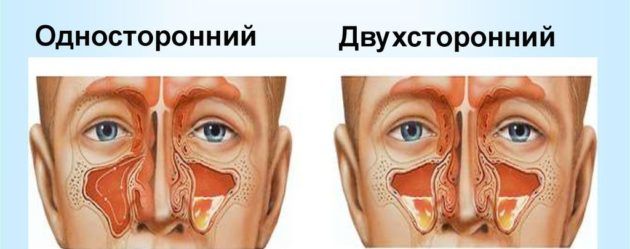
What is the best treatment for sinusitis?
As medical practice shows, the treatment of acute inflammation of the paranasal cavities is a difficult and long task.
First, an intensive antibacterial course is prescribed. The strongest effect is given by the choice of the optimal, that is, a specially selected medical agent.
The following measures are included in the treatment method:
- detoxification of the affected area;
- anti-inflammatory therapy;
- using nasal drops (to reduce swelling);
- physiotherapy.
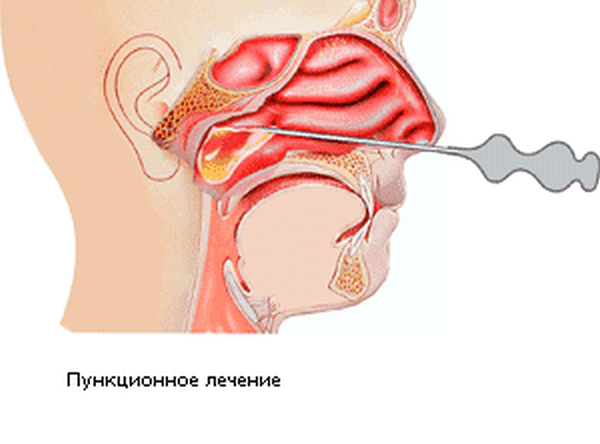
Do I need to pierce the maxillary sinus with a medical needle? The need for this is determined by the ENT specialist who performs the procedure. After cleansing the nasal cavity, an antibacterial drug is injected into it.
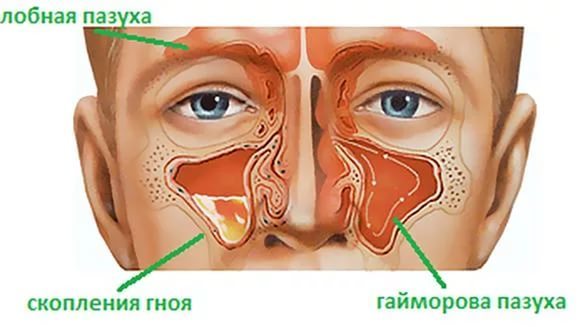
Advice! In the cold season, experts recommend covering your face with a scarf - to avoid hypothermia.
The full course, after which the pathological process stops, lasts two months. With regard to the use of drugs for children, competent advice from an ENT doctor is required.
The best remedies for sinusitis
The selection of funds and their sorting into the list takes place taking into account the opinion of experts. In addition, how much the medicine costs are taken into account, as well as the opinions of users who have experienced its effect on themselves. Here is a pivot table that includes popular products from the best brands that made it into the 2020 list.
| A PLACE | NOMINATION (drug category) | NAME OF THE PREPARATION | Minimum prices (in rubles) |
|---|---|---|---|
| 1 | Antibiotics | Amoxicillin (Amoxil) Sumamed | 104 149 |
| 2 | Antiseptic drops | Isofra Dioxidine Bioparox Polydexa | 365 556 500 287 |
| 3 | Corticosteroids | Beconase Nazonex | 1960 459 |
| 4 | Vasoconstrictor solutions | Dolphin Furacilin Aqualor Iodine solution Saline solution Aqua Maris | 238 45 251 22 131 283 |
| 5 | Combined drugs | Vibrocil Rinofluimucil | 317 292 |
| 6 | Anti-inflammatory drugs | GeloMyrtol GeloMyrtol Forte | 387 508 |
| 7 | Decongestants | Rinofluimucil Oxymetazoline | 292 112 |
| 8 | Vasoconstrictor drops | Sanorin Otrivin Rinostop Nazivin Rinonorm-Teva | 169 165 93 174 92 |
| 9 | Antihistamines | Sanorin-Anallergin Aquamaris Zyrtec Fenistil | 169 283 110 428 |
| 10 | Thinning agents (mucolytics) | Sinuforte Rinofluimucil Fluditek | 1983 292 295 |
| 11 | Intranasal GCS | Nosephrine Avamis | 451 766 |
Description of the most effective drugs
The means for treating sinusitis are determined by the ENT doctor, taking into account the form of the course of this disease.
According to experts, 4 groups of funds have shown high efficiency, which include two drugs.
Antibacterial (antibiotics)
In the complex therapy of sinusitis, agents that suppress pathogenic microflora are necessarily present. The active substance destroys the cell membrane of the pathogen, thereby preventing its growth and reproduction. After treatment, the inflammatory process stops.
The medicine is taken orally or injected. Other product formats: sprays, drops and solutions. In order to achieve a quick result, different forms are combined.
Council. Before using a specific drug, an analysis should be made that identifies the type of pathogenic microorganism. The fact is that antibacterial drugs do not work for allergies or viral infections.
The agents acting on the pathogen include both topical preparations and broad-spectrum antibiotics.
Amoxicillin
Antibacterial, bactericidal medicine. The remedy fights the disease itself, simultaneously relieving pain and improving well-being. Method of production: capsules, tablets and syrup. Amoxicillin is an active substance. Prescribe the drug for an infection that was caused by microbes that are sensitive to it.
The powder is diluted with water according to the instructions, and then taken orally in 3 divided doses. The tablets are swallowed whole, along with the liquid. 7-10 days are enough for the course.
- fast action;
- wide range of applications;
- convenient form;
- effectiveness;
- no side effects were noticed.
- reduces immunity.
According to reviews, Amoxicillin helps with sinusitis. The drug normalizes general health. However, like many prescription antibiotics, it has a negative effect on the immune system.This is because the beneficial microflora is destroyed. Experts recommend additionally consuming a probiotic during treatment.
Sumamed
The drug is produced in the form of coated tablets. The main component is azithromycin dihydrate. Additional ingredients: corn starch; sodium lauryl sulfate; magnesium stearate, and others.
Macrolide antibiotic directly affects the site of infection. After taking it, the state of health is normalized. The nasal cavities are cleared. Absorption is fast. Although it is taken orally, the result is seen after a few hours. The drug retains its therapeutic concentration for 7 days.
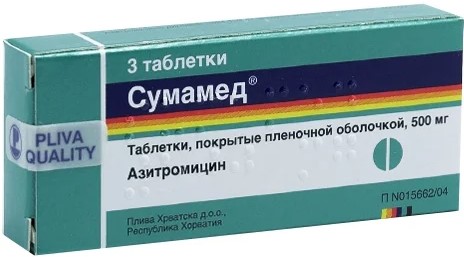
Has a wide range of effects. In addition, it quickly relieves pain and discomfort. Prescribe 500 mg once a day. You need to take it 2 hours after eating. The duration of the course is 3 days.
Council. Be sure to follow the prescribed treatment and dosage schedule, as violation of the instructions will lead to a negative result.
- efficiency;
- has no side effects;
- performs its functions;
- there are no contraindications.
- destroys the microflora of the gastrointestinal tract.
According to reviews, the treatment of maxillary sinuses with this remedy quickly gives the expected effect. Acute sinusitis symptoms disappear. The antibiotic also fights concomitant infections.
Antiseptic (for topical use)
Isofra
The drug is designed for local use. It is effective for various pathologies of the nasal cavity. It is used in the treatment of rhinitis, sinusitis, sinusitis, and other ailments. Framycetin sulfate (12.5 mg) is the main ingredient. Additional components: sodium citrate; sodium chloride; lemon acid.

Release form - 15 ml nasal spray. The medicine immediately removes the cause of the disease. In the process of application, the amount of mucous discharge from the nose decreases. At the same time, the nasal sinus is perfectly cleaned. Sometimes Isofra provokes allergic reactions. Therefore, an individual sensitivity test must be performed.
The spray is sprayed into both nasal passages. Frequency: 1 time for 4-5 receptions per day. Isofra is suitable for a child if the dosage regimen is strictly observed. Frequency of admission: 3 times a day. In medicine, there have been no cases of overdose, but recommendations for use should be followed.
- antibacterial action;
- affects the focus of the disease;
- affordable;
- effectiveness.
- inconvenience in use.
Judging by the reviews, Izofra easily copes with her tasks. The patient's well-being returns to normal quickly enough. However, it has been noticed that the effect is achieved if the drug is used at least 4-5 times a day.
Dioxidine
The drug is a transparent substance. The active ingredient is dioxidine. It is an antibacterial agent that increases the body's resistance to the effects of pathogenic microbes that provoke the development of sinusitis.
The agent differs in that it is rapidly absorbed and excreted through the kidneys. Some side effects are noted. If there is a headache, dizziness, fever, the reception should be discontinued. The first effect is observed after 1-2 days of taking the medicine. Further, the state will return to normal.
Important! Precautions: before taking the drug, you need to test for allergies.
For this purpose, use the lowest dosage. After 5-6 hours, evaluate the result. If there is no allergy, you can take a therapeutic dose.
- efficiency;
- implementation of capsules by the piece;
- availability;
- wide range of applications.
- the presence of side effects;
- personal intolerance.
Judging by the reviews, the drug actively affects the focus of the disease. As a result, overall health returns to normal. Allergic reactions are rare, but you should definitely test your body before taking it.
Intranasal drugs
These are drugs that include adrenomimetics and anti-congestants. They are released in the form of drops, which are injected into the nasal passages according to the instructions.
Sanorin
The drops have proven their ability to fight sinusitis. In addition, they perfectly clean the nasal cavity. Release form: solution in a 10 ml container. The active ingredient is naphazoline nitrate (0.5 mg / ml). It also contains boric acid. In the process of taking, hyperemia disappears, swelling passes. Sanorin facilitates the removal of pathological secretions from the nasal cavity.
The drug is instantly absorbed, and the therapeutic result is observed within 5 minutes after application. The action lasts for 6 hours. The medicine is prescribed for acute rhinitis, otitis media, and inflammation of the nasal cavity, including the sinuses.
Application: 1-2 drops in both nasal passages. Sanorin is buried 3 times a day. In this case, the interval between doses is at least 4 hours. The remedy is contraindicated if the patient has hypersensitivity.
- convenient form of vacation;
- does not burn the mucous membrane;
- without smell;
- constricts blood vessels;
- low cost.
- addiction is formed;
- dry the mucous membrane.
Judging by the reviews, Sanorin OTC drops are quite effective, but they must be used with caution. Dependency formation is possible if applied for a long time.
Otrivin
It is a colorless solution containing menthol and eucalyptus. The active ingredient is xylometazoline hydrochloride (1 mg). The drug immediately affects the epicenter of the disease, eliminates microbes that contribute to the development of sinusitis.
With Otrivin's help, the blood vessels are rapidly narrowed. In addition, it eliminates swelling in the nasopharyngeal mucosa. It is noted that after its application there is no irritation of the nasal mucosa.
Improvement is noticeable 2 minutes after consumption. The action lasts for 12 hours. The duration of the course is 8 days. It is not recommended to use Otrivin for more than 10 days, otherwise addiction is possible.
The remedy is prescribed for hay fever, sinusitis and acute respiratory infections.
- fast effect;
- elimination of congestion;
- decrease in the amount of discharge;
- removal of puffiness;
- affordable price.
- possible side effects.
According to reviews, Otrivin really helps to cure sinusitis. While improving overall health, it also prevents the secretion of mucus from the nose. The product is generally safe, but occasionally produces side effects.
Local anti-inflammatory therapy (GCS)
Local remedies for the relief of sinusitis include intranasal GCS drugs.
Nosephrine
In the group of drugs, InHCS stands out especially as it contains mometasone. Differs in selectivity to GCS-receptors. Available in the form of a spray MF for nasal administration. Clinically proven to be effective.
Apply 2 times a day by injection into the nasal passages. More frequent use can cause problems in the adrenal system.
- safety;
- relieves nasal congestion;
- convenient form of release.
- dries up the mucous membrane.
It is used to treat rhinosinusitis. ENT doctors prescribe a remedy for adults and for children (from 2 years old). Judging by the reviews, negative symptoms disappear within 12 hours after use.
Avamis
White solution that relieves inflammation. The active ingredient is fluticasone furoate. Glucocorticosteroids prevent irritation of receptors, as a result of which itching disappears.
Available in prescription spray form. Coats the mucous membrane for a long time, eliminating nasal congestion.
With sinusitis, it is prescribed in combination with other drugs. It begins to act only after 7-8 hours. The effect is achieved after three days of use. Adults use Avamis according to the instructions. Method of use: inhalation injection. The course of treatment is 7 days.
In children, the daily dose is 55 mcg. A double dose is allowed if the condition does not improve.
Attention! ENT doctors categorically do not recommend Avamis to children under 6 years old.
- long-lasting effect;
- convenient form of release;
- fast action.
- personal intolerance to ingredients;
- can not be used during periods of exacerbation of liver and kidney disease;
- some side effects.
Prescribing to pregnant and lactating women requires medical supervision. Judging by the reviews, with hormonal disorders in the body, it is better to refuse to use it.
Mucolytics
With the help of this group of drugs, a thick substance that accumulates in the maxillary cavities is liquefied. Usually mucolytics are prescribed in addition to physiotherapy procedures. Dosage forms: drops and syrups.
Sinuforte
This is the # 1 mucolytic in the fight against rhinositusitis. The active substance is a lyophilisate from cyclamen extract. Application: preparation of the solution according to the instructions. Before use, you need to spray Sinuforte in the air a couple of times. Hold your breath while injecting.
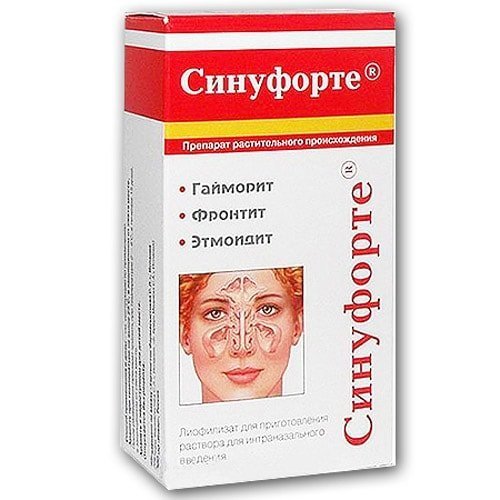
- effective action;
- clears sinuses;
- removes pathological discharge.
- the possibility of allergic manifestations.
It is prescribed with caution for polyps of the paranasal sinuses. Patients suffering from high blood pressure should be consulted.
Important! Dose Sinuforte strictly so as not to harm yourself.
In the treatment of sinusitis, the agent is used in conjunction with other types of therapy. It is better for pregnant women not to use it at all, since there is no scientific evidence on the effect on the child's body. The drug is prescribed for children over 12 years of age.
According to reviews, Sinuforte quickly copes with the elimination of symptoms of sinusitis in adults.
Rinofluimucil
Recognized as one of the best tools. It has antioxidant properties. The active ingredient eliminates puffiness.
Children from 6 years old are prescribed 1 dose 3 times a day. Adults need to press the dispenser at least twice. The course of treatment is a week.
- efficiency;
- relieves inflammation;
- removes swelling.
- dry the mucous membrane;
- allergic manifestations are possible.
Attention! The drug is not prescribed in conjunction with MAO inhibitors. Use with caution during pregnancy and thyroid diseases.
Judging by the reviews of patients, it effectively fights the manifestations of sinusitis, removing pathological contents from the nasopharynx.
The advantage of a mucolytic agent is safety. However, when using it, you must strictly follow the instructions.
Tips for using drugs
It should be noted that with chronic inflammation of the maxillary sinuses, microorganisms acquire resistance to the effects of drugs. Therefore, prescription antibiotics sold in online stores are prescribed after sowing microflora.
Important! Experience shows that vitamins, dietary supplements, and other substances that stimulate immunity show high efficiency in treatment.
In the treatment of allergic sinusitis, the main place is given to antihistamines. Glucocorticoids are also widely used.
Treatment of both acute and sluggish sinusitis takes place independently, that is, on an outpatient basis. Doctors recommend strictly adhering to bed rest. In combination with the optimal cure for sinusitis and sinusitis, this prevents the development of conditions that threaten the body.
How is the outflow from the nasal cavity done at home?
The procedures by which abnormal discharge from the nose is removed are carried out under the supervision of health workers. However, devices have already been developed, the functionality of which makes it possible to rinse the nasal cavity at home. For example, you can use Dolphin, as well as analogues. They are completely safe to use. ENT doctors recommend pediatric nasal cleansing products, provided they reach one year of age.
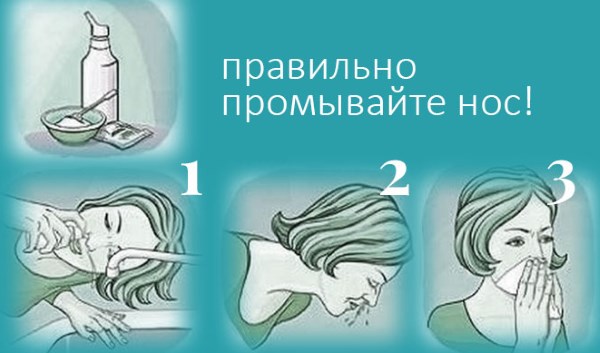
Is traditional medicine effective for sinusitis?
The pathology of the maxillary sinus develops chronically, that is, the phases of exacerbations alternate with remissions. Often, along with pharmacotherapy, folk methods are used to enhance the effect of drugs.
Attention! Experts warn:
- there are no herbal remedies that can replace an antibacterial drug;
- infusions and decoctions made according to folk recipes are not always combined with medicines;
- Internet treatments should be treated with caution.
The general rule developed by doctors says that it is useless to treat acute sinusitis without antibiotics and only folk remedies.
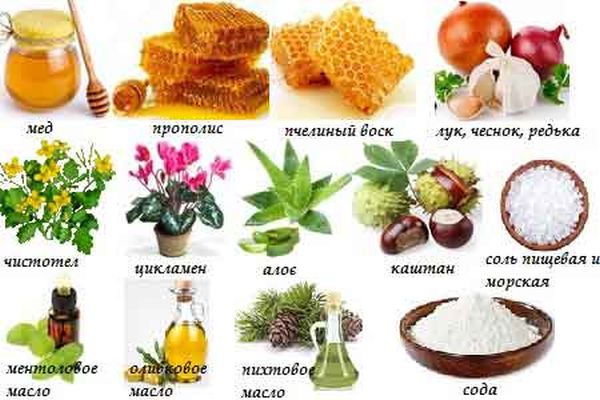
A long pathological process in the maxillary cavity is fraught with consequences. Therefore, it is better to consult an ENT doctor and conduct a full diagnosis. X-rays or CT scans of the skull may be needed. Taking into account the degree of damage to the sinuses and the severity of the process, the specialist will prescribe a course of treatment. Otherwise, the patient will experience fatigue and loss of energy for years.
new entries
Categories
Useful
Popular articles
-

Top rating of the best and inexpensive scooters up to 50 cubic meters in 2020
Views: 97661 -

Rating of the best materials for noise insulation for an apartment in 2020
Views: 95022 -

Rating of cheap analogues of expensive medicines for flu and colds for 2020
Views: 91751 -

The best men's running shoes in 2020
Views: 87680 -

Top ranking of the best smartwatches 2020 - price-quality
Views: 85091 -

Best Complex Vitamins in 2020
Views: 84801 -

The best dye for gray hair - 2020 top ranking
Views: 82406 -

Rating of the best wood paints for interior use in 2020
Views: 77202 -

Ranking of the best action cameras from China in 2020
Views: 75269 -

Rating of the best spinning reels in 2020
Views: 74827 -

The most effective calcium supplements for adults and children in 2020
Views: 72462 -

Top rating of the best means for male potency in 2020 with a description
Views: 68296


